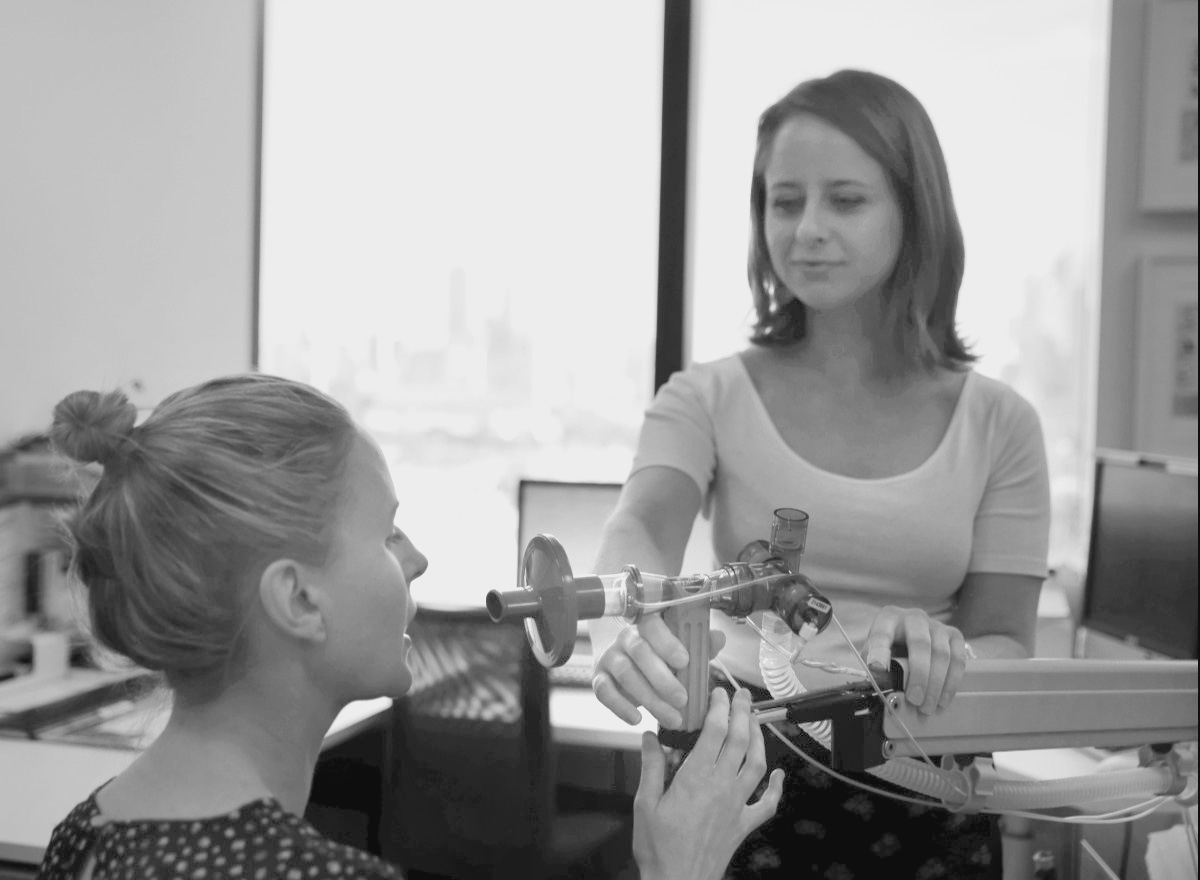
Why are these tests done?
Lung function tests are primarily performed to examine how well your lungs are working in order to investigate your symptoms, such as shortness of breath or a cough in order to find a cause.
How will these tests be done?
The Respiratory Laboratory Scientist will explain and coach you through the testing process.
Test 1- Spirometry, Pre and Post bronchodilator:
This involves you blowing into a machine to see how much air you can blow out, how fast you can blow it out and whether or not it is better after administering a bronchodilator like Ventolin.
Test 2- Gas Diffusion (CO Uptake):
This test is used to determine the health of your lung tissue. It investigates how effectively oxygen is able to pass across the lung membrane and into the blood stream. This test involves you breathing into a machine and holding your breath.
Test 3- Bronchial Provocation Tests:
This test is performed to diagnose whether or not you have asthma. It simply involves you inhaling a spray or fine sugar powder at low, controlled doses to test the sensitivity of your airways. Please refer to BPT withhold chart
Test 4- Exercise test for oxygen supplementation:
This is also known as a 6 Minute Walk Test and your doctor may wish for you to have one in order to see how your oxygen levels fare during exercise. It simply involves you walking as far as you can in 6 minutes at your own pace, while the respiratory scientist monitors your oxygen levels and heart rate. This can determine whether you need supplementary oxygen.
What problems can be diagnosed?
The tests have the possibility to diagnose a range of lung conditions including; Asthma, Chronic Obstructive Pulmonary Disease (COPD), Lung Fibrosis, and Asbestosis. Sometimes other tests are required in order to make a more definitive diagnosis. It is also common to undergo lung function to access whether you are fit for major surgery.
Are these tests painful?
These tests are not painful, but do require maximum effort on your behalf in order to get the most accurate results. The respiratory scientist will ensure you are comfortable throughout the whole process and will be happy to answer any questions you may have regarding the test. The testing process lasts between 15 to 45 minutes, depending on the tests required by your doctor.
Medication Withholding
Instructions for Broncoprovocation Testing (BPT)
The following medications should be withheld for the specified hours before a BPT, unless otherwise directed by your doctor.
Refer to the table for guidance.
| MEDICATION | WITHHOLD HOURS |
| Ventolin, Asmol, Airomir, Bricanyl | 8 |
| Qvar, Pulmicort, Flixotide, Alvesco, Arnuity, Atrovent | 12 |
| Seretide, Symbicort, Breo, Fostair, Duoresp, Oxis, Serevent, Onbrez, Atectura | 24 |
| Trelegy, Trimbow, Breztri, Onbrez, Anoro, Incruse, Spiriva, Spiolto, Bretaris, Seebri, Brimica, Enerzair, Braitus | 72 |
| Antihistamines | 72 |
| Nuelin/Theophylline | 72 |
| Singulair/Montelukast | 24 |
If you are taking asthma medication that isn’t listed above, please check with your referring doctor if it needs to be withheld prior to BPT.
No smoking 3 hours prior to the test.
